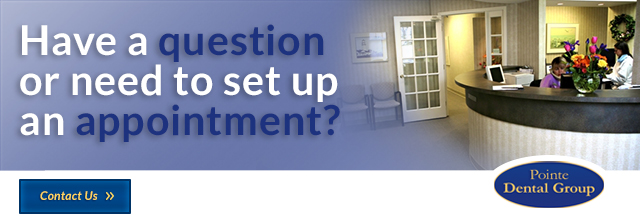
Is it possible you could be brushing your teeth incorrectly? You may be surprised to learn that it’s fairly common! Because it seems so simple, you may have grown up without anyone teaching you how to brush your teeth properly. Inadequate brushing leads to several short- and long-term consequences for your health.
If you want to make sure you’re not missing any steps, read on to learn the right way to brush your teeth.
How to Brush Your Teeth Properly
Use Pressure, But Not Too Much
The first mistake that many people make is using too little or too much pressure. Plaque sticks to your teeth and isn’t easy to clean. With gentle brushing, you may not have enough force to clear it from your teeth or gums.
On the other hand, excessive abrasion can be bad for your teeth. While it will most certainly help with removing plaque, you can also remove enamel with extreme force. It shouldn’t hurt when you brush.
Brush Every Surface: Front, Back & Top
Most people know to brush the front of their teeth – after all, that’s how you keep your teeth looking great for photos and first impressions! But the other two major surfaces of your teeth, the top and the back, are just as vulnerable to bacteria.
Because you chew with the top of your teeth, it’s critical to adequately brush. Likewise, if you don’t tilt the brush outward to clean the backside of your teeth, bacteria will spread where it can subtly damage your teeth.
Don’t Skip Your Gums
Learning how to brush your teeth properly means learning to brush your gums as well! While your gums won’t develop cavities, they will experience inflammation. This inflammation is a reaction to the onset of gum disease.
Brushing your gums is simple – just use the same gentle pressure you do with your teeth. In most cases, it shouldn’t hurt. Your gums may bleed or be sensitive if you’re already at the early stages of gum disease. Don’t worry! Early gingivitis is easily reversible as long as you continue brushing regularly.
Brushing Your Tongue Is Important Too!
Surprisingly, this core part of thorough brushing is often overlooked. Your tongue is just as much a part of your dental ecosystem as your teeth or gums. Bad breath is typically considered a general mouth hygiene issue, but it’s often the result of bacteria left undisturbed on your tongue.
A few quick brushes back-to-front across your tongue is all it takes. You can use your regular toothbrush or purchase a dedicated tongue cleaner. They both work about the same as long as you brush consistently.
Two Minutes Minimum
Do you use a timer when you brush? You may want to give it a try! One of the biggest hurdles most people have with learning how to brush their teeth is taking the time to do it completely.
You should be brushing for a full two minutes. Electric toothbrushes often signal you with a buzz, allowing you to focus on brushing. Those using manual toothbrushes need to incorporate a timer or take extra care that they aren’t brushing too quickly (or for too long!)
How Brushing Improves Your Health
You’ve always been told how important it is to brush your teeth, but you may not appreciate exactly how it helps. Good oral hygiene protects more than just your mouth! Here are the main benefits of brushing your teeth:
Reduced Bacteria and Cavities
The most direct benefit of brushing your teeth is removing bacteria and other sources of decay from your teeth. Without brushing, these bacteria stay on your teeth and feed on sources of energy from the foods or drinks you consume – primarily sugars.
When they eat these sugars, they leave behind an acidic waste that destroys the enamel on your teeth. Without enamel, your teeth are left vulnerable to more bacteria and direct damage. Even more critical is the fact that enamel can’t be regenerated. So, poor oral hygiene can have lasting effects – even if you think you’ll improve your habits later in life!
Prevent Gum Disease & Periodontal Disease
Bacteria that attack your teeth also attack your gums. Left undisturbed, bacteria form into a biofilm known as plaque. This plaque is harder and sticky – it attaches directly to your teeth and gums. Over time, plaque will cause gingivitis, a basic form of gum disease.
There is a cumulative effect of bacteria in your mouth. Because they wear away at your gums, they create new pockets or cavities in which to thrive. The longer you go without brushing your gums gives bacteria a chance to dig in and multiply, increasing the rate at which you experience decay, pain and eventual complete tooth loss!
Improve Overall Health
Your oral health has connections with the rest of your body. While some of the correlations aren’t well understood, there is plenty of research that shows those with healthy mouths have healthier bodies! Cardiovascular disease and dental health appear to go hand-in-hand!

Schedule an Appointment Today!
Pointe Dental Group can provide you with a complete examination, answer your questions, and discuss your treatment options. Schedule an appointment with us today! New patients can receive FREE comprehensive exam and consultation, plus a full panoramic x-ray with a paid cleaning procedure (a $200 value)!
Grosse Pointe Farms: (313) 881-2480
Shelby Township: (586) 803-8300
Don’t miss a thing! Connect with us on Facebook.